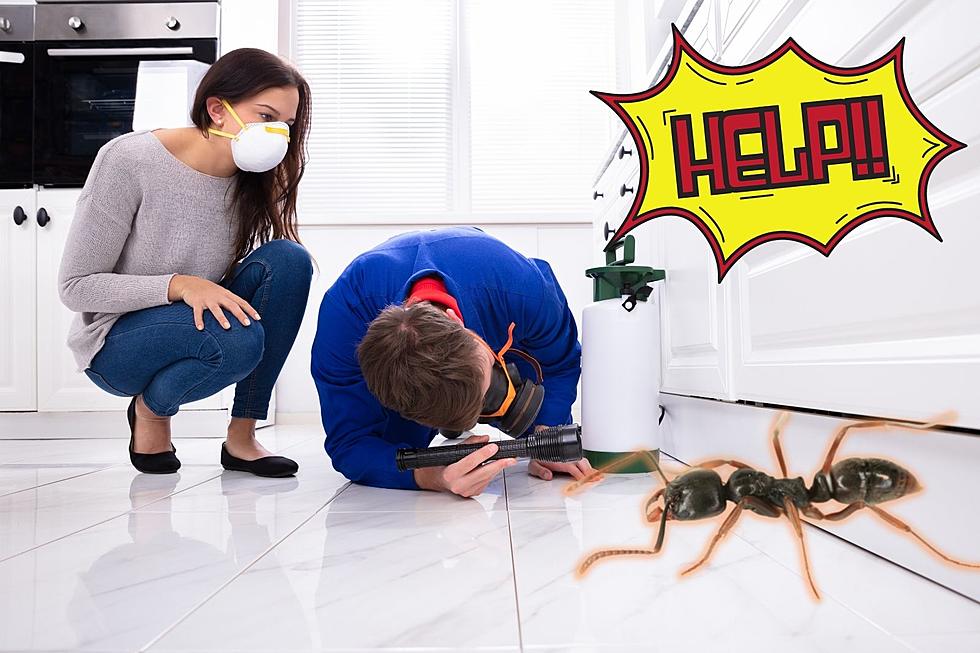
How The Invasive Asian Needle Ant Was Discovered in Evansville, and How to Prevent it From Invading Your Home
https://www.aaas.org/invasive-asian-needle-ants-thriving-spreading-us / Canva
Last week we told you about the shocking discovery of the Asian needle ant right here in Evansville, Indiana. I wondered how in the world this potentially deadly ant was discovered. I mean, it's not like they just turn themselves over to the insect police. Instead of speculating, I went to the expert for answers.
Timothy Gibb is an Entomologist at Purdue University, and he is an expert in all things insects. I reached out to him with the questions that we all have about this potentially deadly Asian needle ant.
How was this invasive ant discovered in Southern Indiana?
"From the information I have, a perceptive homeowner and pest control professional near Evansville recognized this ant as being something out of the norm. They tentatively identified it as an Asian needle ant, sent it to the INDNR and Purdue University Plant and Pest Diagnostic Laboratory for verification. It was confirmed as Asian needle ant."
Yikes! That sounds terrifying. Should we be worried?
"This is the first confirmed find of this ant in Indiana so becoming overly alarmed is not justified at this stage."
What can homeowners do to prevent this ant from moving in?
"We do know that it can be controlled inside homes or in crawl spaces by using household labeled baits. These are most effectively be placed via professional pest managers. Perimeter applied pesticides are also effective in preventing ants from entering homes and there is every reason to think that these types of chemical exclusion techniques are effective in excluding this ant."
More information:
Mr. Gibb referred me to the American Association for the Advancement of Science for more information about the ant.
Asian needle ants are not picky about where they live. In forested areas, they nest in logs or under rocks and leaves. In suburban and urban neighborhoods, they can nest anywhere from potted plants to piles of mulch, or even underneath doormats. Colonies can range from a few dozen ants to a few thousand, and larger colonies can live in one big nest or several small ones. Asian needle ants are also not fussy when it comes to food. They love termites, but will also scavenge for other ants, dead or dying insects, and even human garbage.
How Harmful are Asian Needle Ants?
According to the United States Department of Agriculture Forest Service, the sting of the Asian needle ant is painful, kind of like a bee sting. The venom often affects different people in different ways. For instance, the sting can result in life-threatening anaphylaxis in some cases. I'm usually in the 1% of anything, so I will plan for the worst-case scenario. I just can't be taken out by an ant.
If you are allergic to other insect bites or stings, it's a good idea to keep an EpiPen handy.
Read More: Asian Needle Ants Evansville, Indiana Painful Venomous Sting


